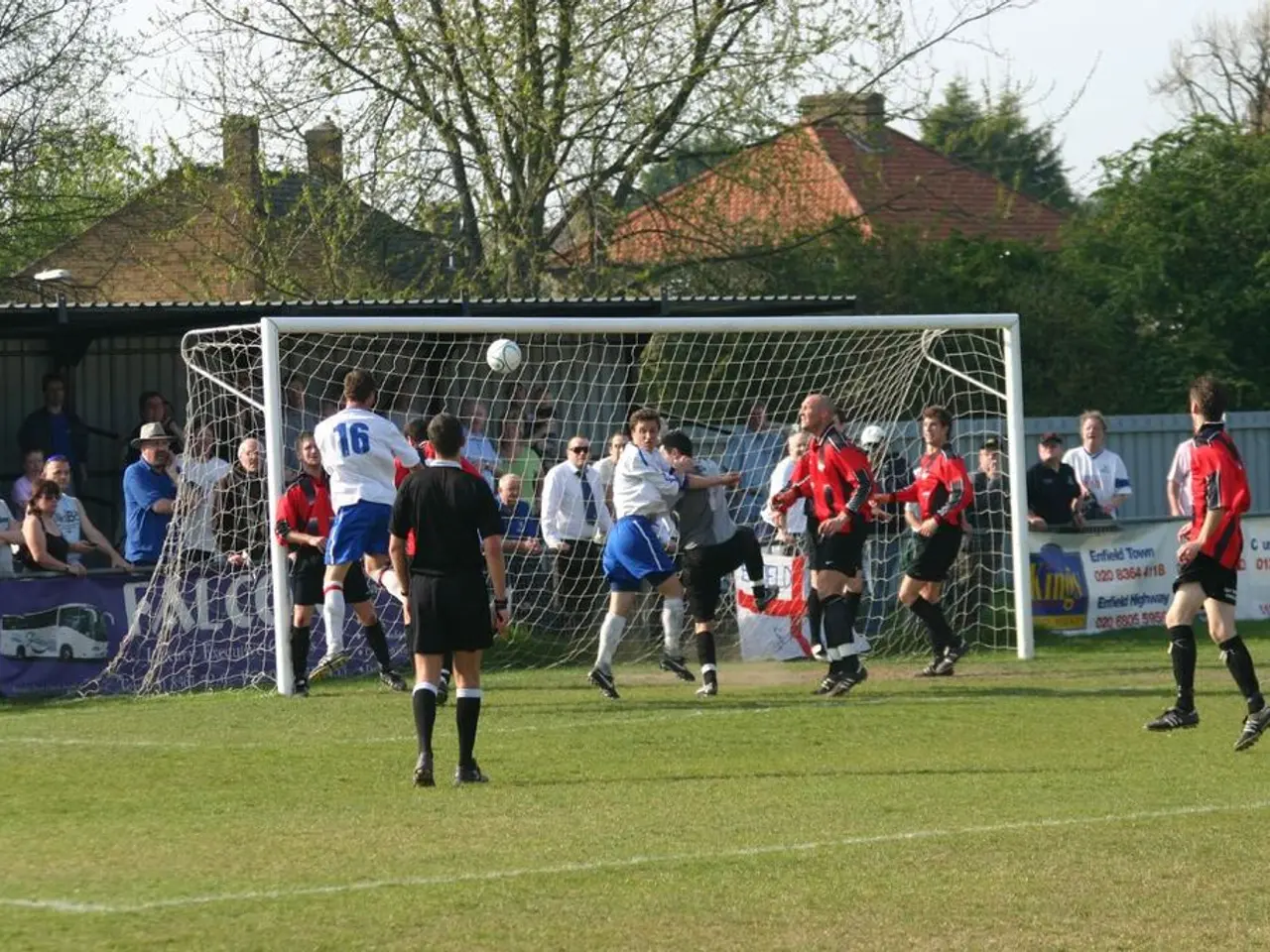Placing wagers on Super Bowl LIX sparks concerns about consumer protection
With the Super Bowl just around the corner, sports fans across the United States are gearing up for one of the most anticipated events of the year. As the excitement builds, it's essential to remember that betting on the big game should be done responsibly and within the confines of the law.
This Sunday, the Super Bowl will take place in New Orleans at 6:30 pm EST. If you're planning to place a bet, it's crucial to understand the importance of choosing legal and regulated platforms.
In the US, legal sports betting platforms are licensed on a state-by-state basis, with major operators such as BetMGM, Caesars, DraftKings, FanDuel, bet365, BetRivers, Fanatics Sportsbook, and others holding licenses in various states.
For instance, Louisiana has eight legal online sportsbooks including BetMGM, FanDuel, Caesars, DraftKings, and bet365, regulated by the Louisiana Gaming Control Board. Virginia, on the other hand, has 11 legal sportsbooks including draftKings, Caesars, and bet365, overseen by the Virginia Lottery.
While some sportsbook apps like Bovada and BetOnline accept bets nationwide, they are not legally licensed in every state. These offshore or unregulated sites differ significantly from state-licensed sportsbooks.
Legal, licensed sportsbooks offer several protections that illegal bookies and offshore sportsbooks typically lack. These include licensing and regulatory oversight, responsible gambling tools, secure transactions, and dispute resolution and transparency.
Licensed sportsbooks must comply with stringent state gaming laws and undergo regular audits to ensure fairness and security. They also provide features like bet limits, self-exclusion programs, and access to problem gambling resources. Secure transactions are made possible through encrypted payment methods, allowing deposits and withdrawals through trusted financial services like credit cards, PayPal, and Bitcoin. Legal sportsbooks also have mandated customer service protocols for resolving disputes and transparent terms and conditions protecting bettors' rights.
In contrast, illegal bookies and offshore sportsbooks typically lack these protections. They may operate without proper licensing, increasing the risk of unfair practices or non-payment. They also limit or lack responsible gambling tools or formal player recourse, and they are at a higher risk of data breaches, fraud, or blocked withdrawals.
Given the rising volumes and amounts wagered on the Super Bowl, it's crucial to have these safeguards in place. In fact, a record-breaking $1.39 billion in legal handle is expected for Super Bowl LIX in 2025.
So, before you place your bet on the Super Bowl, remember to do so with a state-licensed sportsbook. This will guarantee legal protections, regulatory oversight, secure financial transactions, and player support services that are absent from offshore or illegal bookies.
The Arizona Department of Gaming is reminding bettors to "bet responsibly and within the bounds of the law." In Florida, sports betting is monopolized by the Seminole Tribe and its Hard Rock Bet Sportsbook, both in-person and online.
Legal and regulated platforms prioritize consumer safety and fair play. However, some platforms disguise themselves as sweepstakes casinos that offer bets on sports. Be sure to verify the legitimacy of the platform before placing your bet.
The Massachusetts Gaming Commission is urging those who choose to bet to do so with an operator licensed in Massachusetts. Arizona Department of Gaming Director Jackie Johnson encourages all Arizonans to ensure their wagers are placed legally and thoughtfully.
Currently, legal wagers on Super Bowl LIX can be placed in 38 states and Washington, D.C. So, whether you're rooting for the Eagles or the Chiefs, make sure your bet is a safe and enjoyable part of the Super Bowl experience.
- In the Super Bowl, it's essential to follow the law when it comes to betting, as the event approaches.
- For the Super Bowl, it's crucial to recognize the importance of using legal and regulated sports betting platforms.
- In various states across the US, legitimate sportsbooks like BetMGM, Caesars, DraftKings, and FanDuel have received licenses.
- Some states, like Louisiana and Virginia, have specific regulations for legal online sportsbooks, overseen by their respective Gaming Control Boards or Lotteries.
- Offshore sportsbooks, while accepting bets nationwide, are not licensed in all states and lack the regulatory protections that state-licensed sportsbooks offer.
- Legal sportsbooks, when compared to offshore or illegal bookies, provide protections such as secure transactions, responsible gambling tools, and fairness and security assurance.








